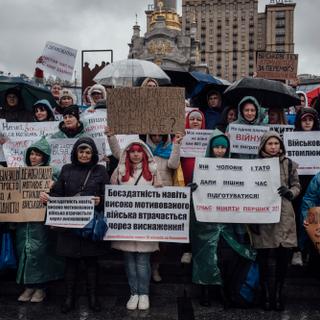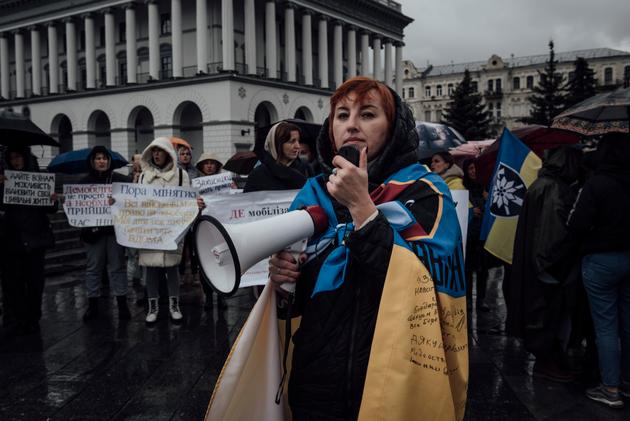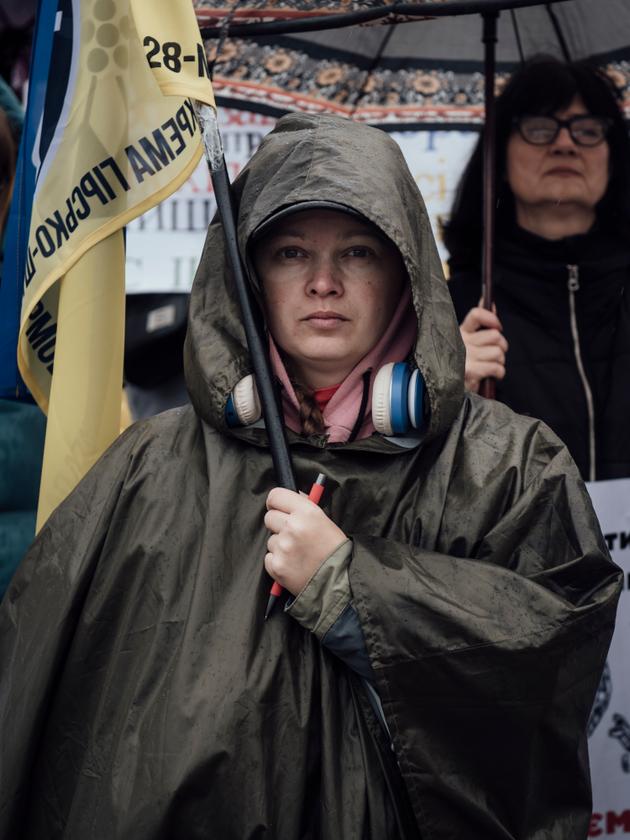


Ukrainian women call for husbands' demobilization after 18 months of war
NewsIn Maidan Square, as in the rest of Ukraine, women have been demonstrating for two weeks for the return and replacement of the men who left for the front in the early hours of the Russian invasion.
A small crowd, mainly composed of women, gathered in Kyiv's Maidan Square, to demand their husbands' demobilization after 18 months of service in the army. This Sunday, November 12, in the Ukrainian capital's central square, a few dozen wives braved the wind and rain, placards in hand and some accompanied by their children. "Gone to defend a free country and become a serf of war;" "Now it's the others' turn." A little girl held a sign written with pink letters: "It's my turn to hug my father."

"We want a time limit, because today there's this feeling that you can join the army only to never leave," explained Anastasiia Troshyna, 23, whose husband, Oleg, is fighting in the eastern region of the Donbas, in the Donetsk area. "They're tired, demotivated, they want a rest," insisted the young woman, referring to her husband and the soldiers in his unit. "They want to come here, to see their children and their loved ones."
Under Ukraine's martial law, demobilization is only possible in the event of serious injury, for imperative family reasons, or when reaching the age limit for mobilization, currently set at 60 years of age. Since Oleg enlisted in March 2022, Troshyna has been able to reunite with him on just one occasion, when he was sent to a hospital in the capital with a leg injury. Although Ukrainian law stipulates that soldiers are entitled to thirty days' leave a year, "this law doesn't work," asserted his wife, "because there's no one to replace them."
Refusals to enlist
Therein lies another ambition of these small demonstrations, which have brought together dozens of women in several towns across the country over the past two weeks: To convince those who have not yet fought to join the armed forces. "I have people around me who want to go, but are hesitant because they don't know how long it will last," said Troshyna. "Will it be for five years? For ten years? Today, the impression is that you have to be out there until the end."
For Olha, who refused to give her surname, demobilization after 18 months would offer them some prospects. "Nobody wants to go and fight, and those who are at home realize that there's no end to it," she said. "You're in it until you die or become disabled. Maybe that [measure] will motivate others, maybe it will ease their fears a little, because people are scared, scared of going out there and dying."

The mass enlistment during the first months of the invasion, which made Ukrainians so proud, has over the last few months given way to increasing criticism of those men who are determined to do everything in their power to avoid serving in the army. Some have limited their movements or hardly leave their homes anymore. This is also reflected in the popularity of Telegram channels that track the movements of recruiting officers through cities.
You have 40% of this article left to read. The rest is for subscribers only.
